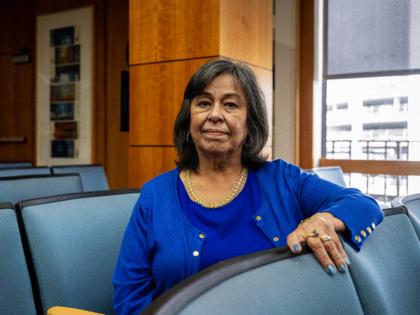California's expanded health coverage for immigrants collides with Medicaid reviews
Published in Health & Fitness
OAKLAND, Calif. — Medi-Cal health coverage kicked in for Antonio Abundis just when the custodian needed it most.
Shortly after Abundis transitioned from limited to full-scope coverage in 2022 under California’s expansion of Medi-Cal to older residents without legal immigration status, he was diagnosed with leukemia, a cancer affecting the blood cells. The soft-spoken father of three took the news in stride as his doctor said his blood test suggested his cancer wasn’t advanced. His next steps were to get more tests and formulate a treatment plan with a cancer team at Epic Care in Emeryville. But all of that was derailed when he showed up last July for bloodwork at La Clínica de La Raza in Oakland and was told he was no longer on Medi-Cal.
“They never sent me a letter or anything telling me that I was removed,” Abundis, now 63, said in Spanish about losing his insurance.
Abundis is among hundreds of thousands of Latinos who have been kicked off Medi-Cal, California’s Medicaid program for low-income people, as states resume annual eligibility checks that were paused at the height of the COVID-19 pandemic. The redetermination process, as it is known, has disproportionately affected Latinos, who make up a majority of Medi-Cal beneficiaries. According to the California Department of Health Care Services, more than 653,000 of the more than 1.3 million residents who have been disenrolled over eight months identify as Latino. Some, including Abundis, had only recently gained coverage as the state expanded Medi-Cal to residents without legal residency.
The collision of state and federal policies has not only set off enrollee whiplash but swelled demand for enrollment assistance as people are dropped from Medi-Cal, often for procedural issues. Health groups serving Latino communities report being inundated by requests for help, but at the same time, a state-sponsored survey suggests Hispanic households are more likely than other ethnic or racial groups to lose coverage because they’re less knowledgeable of the renewal process. They may also struggle to advocate for themselves.
Some health advocates are pressing for a pause. They warn that disenrollments will not only undercut the state’s effort to reduce the number of uninsured but could exacerbate health disparities, particularly for an ethnic group that bore the brunt of the pandemic. One national study found that Latinos in the U.S. were three times as likely to contract COVID and twice as likely to die of it than the general population, in part because they tend to live in more crowded or multigenerational households and work in front-line jobs.
“These difficulties place all of us as a community in this more fragile state where the safety net means even more now,” said Seciah Aquino, executive director of the Latino Coalition for a Healthy California, a health advocacy organization.
Assembly member Tasha Boerner, an Encinitas Democrat, has introduced a bill that would slow disenrollments by allowing people 19 and older to keep their coverage automatically for 12 months and extend flexible pandemic-era policies such as not requiring proof of income in certain cases for renewals. That would benefit Hispanics, who make up nearly 51% of the Medi-Cal population compared with 40% of the overall state population. The governor’s office said it does not comment on pending legislation.
Tony Cava, a spokesperson for the Department of Health Care Services, said in an email that the agency has taken steps to increase the number of people automatically reenrolled in Medi-Cal and does not consider a pause necessary. The disenrollment rate dropped 10% from November to December, Cava said.
Still, state officials acknowledge more could be done to help people complete their applications. “We’re still not reaching certain pockets,” said Yingjia Huang, assistant deputy director of health care benefits and eligibility at DHCS.
...continued
©2024 KFF Health News. Distributed by Tribune Content Agency, LLC.










Comments